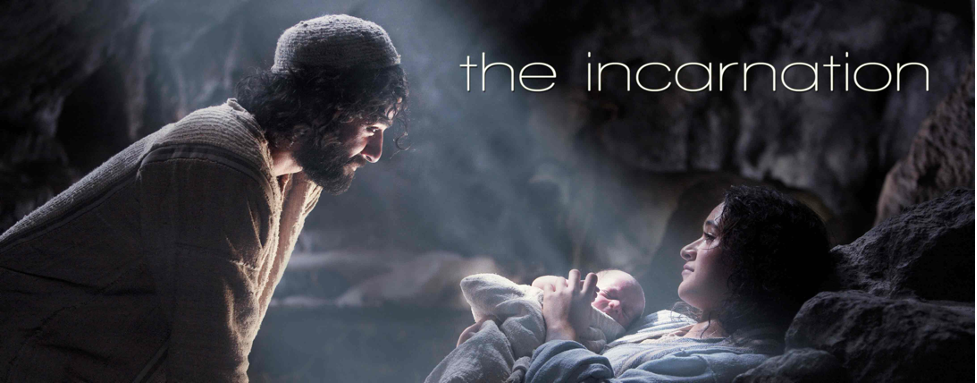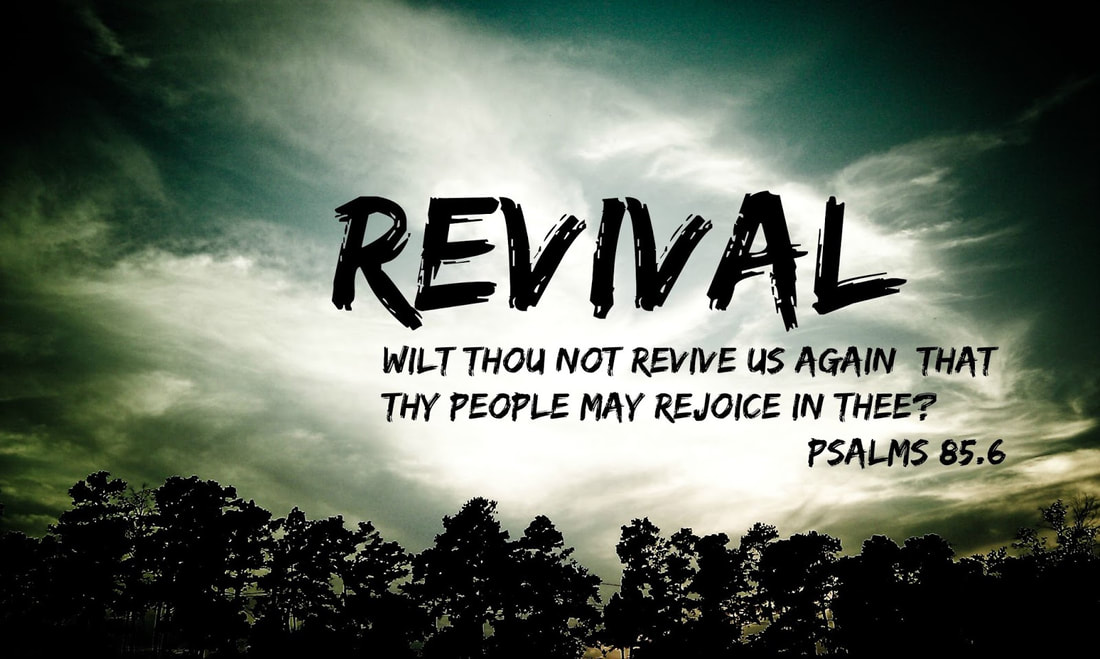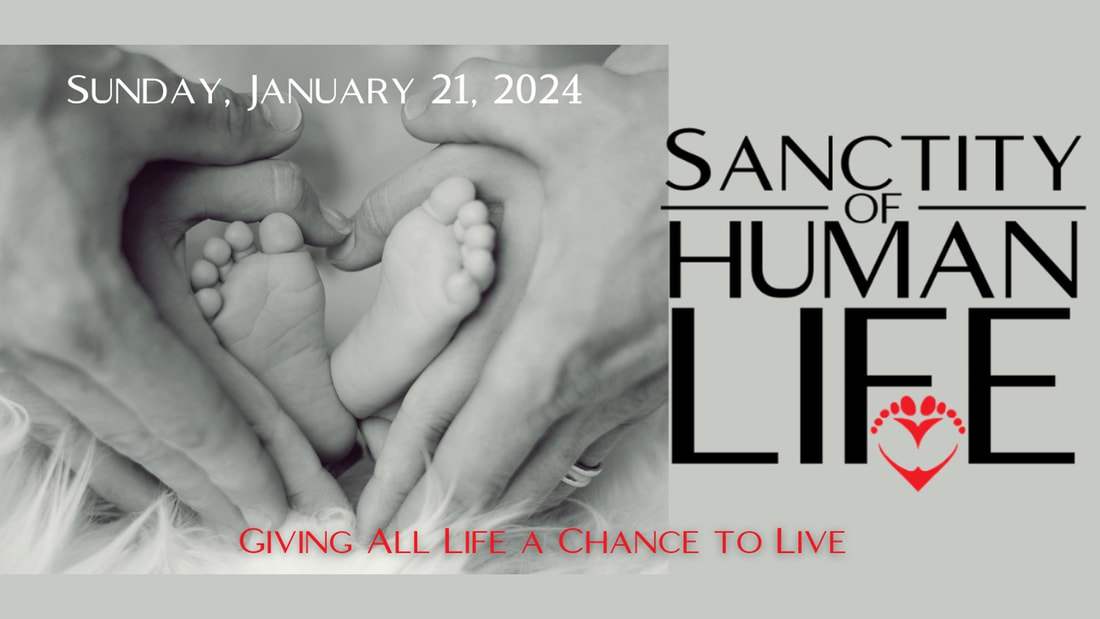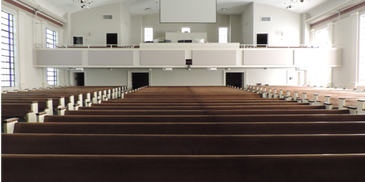|
In the past two years, the right to abortion has been one of the most heated discussions in our country. We rejoice that the Supreme Court overturned Roe vs. Wade in 2022. But this hasn't stopped abortion; it simply placed the decision back into the hands of each state. While many states have chosen to stop abortions, we still recognize the awful tragedy that, on average, the lives of approximately 98 precious babies are ended every hour! In response to the Supreme Court's decision, the abortion industry nationwide has stepped up its efforts to promote a culture of death by offering abortion as the smart answer to an unplanned pregnancy during uncertain times. One of the best ways to stand against this evil is to come together and openly state, "We support and defend the Sanctity of Human Life." In 1984, President Ronal Reagan issued a presidential proclamation designating the third Sunday of January as National Sanctity of Human Life Day. We are continuing that tradition by setting this day aside January 21, 2024, as a day to pray for the end of the tragedy of abortion, ask for God's mercy on our country for this heinous sin, and proclaim loudly that all lives are created in the image of God and should be treated as such. Please join us on Sunday, January 21, as we declare the sanctity of all human lives and stand together to protect the lives of each and every unborn baby. Isaiah 49:1 "Listen, O isles, unto me; and hearken, ye people, from far; The LORD hath called me from the womb; from the bowels of my mother hath he made mention of my name." - Pastor David Carroll, Senior Pastor, Sharon Baptist Church
0 Comments
PROPHESIES OF THE BIRTH OF CHRIST Most of us have probably heard the story of the birth of Jesus, but what some may not realize is that His birth, right down to the last detail, was a fulfillment of thousands of Old Testament prophecies. These prophecies were written between 1450 BC and 430 BC. Manuscripts have been found to prove they were written at least 400 - 1000 years before He was born. It would be difficult enough to predict something 5 years away let alone 4-15 centuries, especially with the degree of detail and 100% accuracy. It would also be impossible for someone to plan to fulfill all the prophecies. The prophecies speak of timing, location and circumstances of birth. Who but God alone could plan such things? 1. Promised Through the Seed of Abraham: • Old Testament Prophecy: Genesis 22:18 • New Testament Fulfillment: Matthew 1:1 2. Promised Through Isaac: • Old Testament Prophecy: Genesis 21:12 • New Testament Fulfillment: Luke 3:34 3. Out of the Tribe of Judah: • Old Testament Prophecy: Micah 5:2 • New Testament Fulfillment: Luke 3:33 4. Born in the Family of Jesse: • Old Testament Prophecy: Isaiah 11:1 • New Testament Fulfillment: Luke 3:32 5. Born in the House of David (King): • Old Testament Prophecy: Jeremiah 23:5-6 • New Testament Fulfillment: Luke 3:31 6. Born in Bethlehem: • Old Testament Prophecy: Micah 5:2 • New Testament Fulfillment: Luke 2:4-7 7. Born of a virgin: • Old Testament Prophecy: Isaiah 7:14 • New Testament Fulfillment: Matthew 1:18 8. Worshipped and Presented gifts by Kings: • Old Testament Prophecy: Psalm 72:10 • New Testament Fulfillment: Matthew 2:11 9. Worshipped by Shepherds: • Old Testament Prophecy: Psalm 72:9 • New Testament Fulfillment: Luke 2:9 10. Weeping for the Children • Old Testament Prophecy: Jeremiah 31:15 • New Testament Fulfillment: Matthew 2:16 11. Flight to Egypt • Old Testament Prophecy: Hosea 11:1 • New Testament Fulfillment: Matthew 2:13-14 12. He will be called Lord: • Old Testament Prophecy: Psalm 110:1 • New Testament Fulfillment: Luke 2:11 13. He is the Son of God: • Old Testament Prophecy: Psalm 2:7 • New Testament Fulfillment: Luke 3:22 These are only a few of the prophecies concerning the birth of Jesus. There are so many prophecies that the probability of someone fulfilling them all is very unlikely. It would be impossible for someone to choose or decide to fulfill them. How could someone decide in what family to be born? How could they plan to be born in Bethlehem even though the family they chose lived in Galilee? This could have only been God. He was able because: 1. He already existed before His earthly appearance. 2. He already knew what was going to happen when He spoke the words through the Old Testament prophets. The Bible tells us in Isaiah 7:14 and Matthew 1:23 that His name was to be Immanuel - God with us. Once we disobeyed God (in the Garden of Eden) we could no longer get to Him, so God chose to come to us. This was indeed the greatest gift ever. In fact, it still is the greatest gift, because it is a "gift that keeps on giving." His birth is only the beginning. His life, death, resurrection and the hope of His return are all part of the gift. Pastor Carroll Senior Pastor Sharon Baptist Church  FIVE TRUTHS ABOUT THE INCARNATION Christmas is about the incarnation of Jesus. Strip away the season’s hustle and bustle, the trees, the cookies, the extra pounds, and what remains is a humble birth story and a stunning reality of the incarnation of the eternal Son of God. This incarnation, God himself becoming human, is a fact that is often neglected and forgotten among all the gifts, get-togethers, pageants, and presents. It would do us good to think deeply about the incarnation, especially during this time of year. Here are five biblical truths of the incarnation. 1. The Incarnation Wasn't The Divine Son’s Beginning The virgin conception and birth in Bethlehem doesn't mark the beginning of the Son of God. But it does mark the eternal Son entering physically into our world and becoming one of us. John 1:1-2 "In the beginning was the Word, and the Word was with God, and the Word was God. [2] The same was in the beginning with God." John 1:14 "And the Word was made flesh, and dwelt among us, (and we beheld his glory, the glory as of the only begotten of the Father,) full of grace and truth." 2. The Incarnation Shows Jesus’s Humility Jesus isn't a typical king. Jesus didn’t come to be served. Instead, Jesus came to serve (Mark 10:45). His humility was on full display from the beginning to the end, from Bethlehem to Golgotha. Paul glories in the humility of Christ when he writes. Philippians 2:6-8 "Who, being in the form of God, thought it not robbery to be equal with God: [7] But made himself of no reputation, and took upon him the form of a servant, and was made in the likeness of men: [8] And being found in fashion as a man, he humbled himself, and became obedient unto death, even the death of the cross." 3. The Incarnation Fulfills Prophecy The incarnation wasn’t random or accidental. It was predicted in the Old Testament and in accordance with God’s eternal plan. Perhaps the clearest text predicting the Messiah would be both human and God is Isaiah 9:6. "For unto us a child is born, unto us a son is given: and the government shall be upon his shoulder: and his name shall be called Wonderful, Counsellor, The mighty God, The everlasting Father, The Prince of Peace." In this verse, Isaiah sees a son that is to be born, and yet he is no ordinary son. His extraordinary names, Wonderful Counselor, Mighty God, Everlasting Father, and Prince of Peace, all point to his deity. And taken together, the son being born and his name points to him being the God-man, Jesus Christ. 4. The Incarnation Is Mysterious The Scriptures don't give us answers to all of our questions. Some things remain mysterious. Moses wrote under the inspiration of God in Deuteronomy 29:29, "The secret things belong unto the LORD our God: but those things which are revealed belong unto us and to our children for ever," Answering the question of how one person could be both fully God and fully man is not something that the Scriptures focus on. The early church fathers preserved this mystery at the Council of Chalcedon (451 A.D.) when they wrote that Jesus is "Recognized in two natures [God and man], without confusion, without change, without division, without separation; the distinction of nature's being in no way annulled by union, but rather the characteristics of each nature being preserved and coming together to form one person and subsistence, not as parted or separated into two persons but one and the same Son and Only-begotten God the Word, Lord Jesus Christ." 5. The Incarnation Is Necessary For Salvation The incarnation of Jesus doesn't save by itself, but it's an essential link in God’s plan of redemption. Hebrews 2:17, we find the scriptures testifying to this, "Wherefore in all things it behoved him to be made like unto his brethren, that he might be a merciful and faithful high priest in things pertaining to God, to make reconciliation for the sins of the people." The incarnation displays the greatness of God. Our God is the eternal God who was born in a stable, not a distant, withdrawn God; our God is a humble, giving God, not a selfish, grabbing God; our God is a purposeful, planning God, not a random, reactionary God; our God is a God who is far above us and whose ways are not our ways, not a God we can put in a box and control; and our God is a God who redeems us by his blood, not a God who leaves us in our sin. Our God is great! Pastor Carroll, Senior Pastor Sharon Baptist Church  KEYS TO A SPIRITUAL REVIVAL In vs)6 of this psalm, the psalmist prays for revival. I hope that as a member of the Body of Christ, you have been praying for and desiring a heaven-sent Holy Ghost revival here at Sharon Baptist Church. Our Thanksgiving Revival will begin on Wednesday, November 15th – Sunday, November 20th, with the Tidewater Baptist Youth Fellowship holding an area meeting on Saturday. As we look at this Psalm, would you pray with me that we may become burdened for God to send a Holy Ghost revival to our church? Would you be bold enough to pray, "Let it begin with me?" You may think, "Pastor, what are the keys to a spiritual revival?" We must confess our need for revival. The psalmist’s prayer was a confession of that need. It was only when he felt the need for revival that he prayed. Think of the need for revival not only in terms of the world but also in our church and our own lives. Remember, revival begins within first, then bursts outward to the church and the world. We must admit the possibility of revival. Do you believe that genuine revival is possible? The psalmist was! He reminded God of what He had done six times in vs)1-3. The fact that God has sent revival in the past demonstrates the possibility of revival coming again. Some people will not admit the possibility of revival coming in our day. But history and the promises of God prove the possibility of revival. We must recognize the source of revival. Where does revival come from? Verse 6 tells us, "Thou." It comes from God; it's not worked up but sent down, and therefore our eyes must not be upon men, methods, churches, or the evangelist but on Him. (Psalm 62:5) We must use the means for obtaining revival. What is the secret of revival? It's prayer, notice in vs)6 "Will thou not?" It takes passionate, faith-filled, and urgent prayer for God to send revival. There has never been a revival in the history of mankind that wasn't preceded by great prayer. (2 Chronicles 7:14) We must remove the obstacles to revival. In vs)6, the psalmist prays for revival "that thy people may rejoice in thee." This indicates fellowship, walking with God, and agreeing with God. The greatest obstacle to revival is our sin. Are you right with God? Is there sin in your life? Are you living in obedience to the Lord so you can walk with the Lord? (Amos 3:3) Many years ago, D. L. Moody heard Henry Varley say, "The world has yet to see what God will do with one man who is fully surrendered to Him." Moody said, "By God’s grace, I’ll be that man!" Will you begin to pray the same prayer for your church so that the world may see what God can do in and through you? We shall enjoy the results of revival. Read through the rest of the psalm and notice the results of revival that are mentioned. (Psalm 37:23) May each of us at Sharon Baptist Church begin to prepare our hearts now so that God will send revival to us individually and the church corporately.  Ephesians 5:16 "Redeeming the time, because the days are evil." All of us have become used to the name Daylight Savings Time, but there are only so many hours in a day, and changing the clock doesn't save time. But there is another type of Daylight Savings Time. Jesus said in John 9:4, "The night cometh when no man can work." The text tells us to literally "buy up" our opportunities. The only way we can save our working hours is to spend them in the service of God. The only money we save is the money we invest in the souls of men, and the only time we don't use it is the time we use it to the glory of God. The Psalmist prayed, "So teach us to number our days, that we may apply our hearts to wisdom." (Psalm 90:12). We sing that wonderful hymn, "Work For The Night Is Coming," but did you ever count up Him many hours in a day you spend on yourself and how little time for God and others? It's time to save time. We can run up a good bank account of hours knowing Christ better and making Him known. It's not time spent but time gained, an investment, treasure laid up in Heaven. I'm not just talking about "full-time Christian service." Every Christian is called to full-time service. Aren’t we all supposed to live for Him all the time? How much daylight have you saved by spending it on His glory? - Pastor Carroll We have been enjoying our time studying verse by verse through the book of John in Adult Sunday School at Sharon Baptist Church. As we have come to chapter 3, the Lord allowed us the opportunity to go over that blessed verse, John 3:16.
"For God so loved the world, that he gave his only begotten Son, that whosoever believeth in him should not perish, but have everlasting life." Perhaps no other verse in the Word of God has been so mightily used to draw men to a saving knowledge of the Lord Jesus Christ. As we looked at that wonderful summary verse of God's redemptive plan and His love for us, the Word of God immediately reminded us and set the record straight as to the character of our wonderful Almighty God! Verse 17 states, "For God sent not his Son into the world to condemn the world; but that the world through him might be saved." We find further in the second epistle of Peter, chapter 3 verse 9 that, "The Lord is not slack concerning his promise, as some men count slackness; but is longsuffering to us-ward, not willing that any should perish, but that all should come to repentance." For thousands of years, the Lord has been and continues to be long-suffering to us-ward. He would that all men would be saved and come unto the knowledge of the truth (Titus 2:4). The sad truth is that many choose to abide in darkness and reject the Lord Jesus Christ. As the world continues to wax worse and worse, evil folks will continue to use the tactic of the Devil, which is to malign the character of God. This was Satan's tactic in Genesis 3 in his portrayal of God as holding back good from man. And evil men today, under his influence, still do the same. As I studied and prepared to teach through verses 16-21, I was reminded of how men shake their fists at God in an attempt to divert the Light from exposing their love for darkness. (Amazingly, this will continue through the tribulation period, even while God's judgment falls upon this world.) One such man, who has received much notoriety, Richard Dawkins, stated this, "The God of the Old Testament is arguably the most unpleasant character in all of fiction: jealous and proud of it; a petty, unjust, unforgiving control freak; a vindictive, bloodthirsty ethnic cleanser; a misogynistic, homophobic, racist, infanticidal, genocidal, filicidal, pestilential, megalomaniacal, sadomasochistic, capriciously malevolent bully." How could someone possibly come to this conclusion? The answer is found in the Word of God. The Bible says in John 3, "18 He that believeth on him is not condemned: but he that believeth not is condemned already, because he hath not believed in the name of the only begotten Son of God. 19 And this is the condemnation, that light is come into the world, and men loved darkness rather than light because their deeds were evil. 20 For every one that doeth evil hateth the light, neither cometh to the light, lest his deeds should be reproved. 21 But he that doeth truth cometh to the light, that his deeds may be made manifest, that they are wrought in God." Those that shake their fist at God, who deny what all of creation testifies and what God has put in them, do so to conceal their evil deeds. The Light has come into the world; He is the Lord and Savior Jesus Christ. The choice before all men is evident. Either come to the Light, the Lord and Savior Jesus Christ or remain in the darkness because their deeds are evil. John, yea the Holy Spirit, sets the record straight in verse 17, "For God sent not his Son into the world to condemn the world; but that the world through him might be saved." "For God so loved the world, that he gave his only begotten Son, that whosoever believeth in him should not perish, but have everlasting life." "For what if some did not believe? shall their unbelief make the faith of God without effect? God forbid: yea, let God be true, but every man a liar; as it is written, That thou mightest be justified in thy sayings, and mightest overcome when thou art judged." Romans 3:3-4 If you would like to hear more than just this small except from our Sunday School Series in John, visit https://www.sharonbaptisthamptonva.com/john.html - Pastor James, Associate Pastor, Sharon Baptist Church The references to God’s Hand in the Bible are a great study. Throughout the Word of God, allusions to the power, mercy and strength of the Lord’s hand occur in great numbers.
Here are a few you can apply to your own personal study.. 1. The Mighty Hand of God. Deuteronomy 3:24 "O Lord GOD, thou hast begun to shew thy servant thy greatness, and thy mighty hand: for what God is there in heaven or in earth, that can do according to thy works, and according to thy might?" Isaiah 40:10 “Behold, the Lord GOD will come with strong hand, and his arm shall rule for him: behold, his reward is with him, and his work before him” Not only is He a God who Possesses all power and strength, but our God gives of that power and strength to his people. Psalm 68:35 "O God, thou art terrible out of thy holy places: the God of Israel is he that giveth strength and power unto his people. Blessed be God." 2. The Right Hand of God. Mark 16:19 "So then after the Lord had spoken unto them, he was received up into heaven, and sat on the right hand of God." Matthew 25:34 "Then shall the King say unto them on his right hand, Come, ye blessed of my Father, inherit the kingdom prepared for you from the foundation of the world:" Acts 7:55 "But he, being full of the Holy Ghost, looked up steadfastly into heaven, and saw the glory of God, and Jesus standing on the right hand of God," 3. The Covering Hand of God. Isaiah 51:16 "And I have put my words in thy mouth, and I have covered thee in the shadow of mine hand, that I may plant the heavens, and lay the foundations of the earth, and say unto Zion, Thou art my people." Psalm 139:5 "Thou hast beset me behind and before, and laid thine hand upon me." 4. God's Hand of Instruction. Job 27:11 "I will teach you by the hand of God: that which is with the Almighty will I not conceal." Revelation 7:17 "For the Lamb which is in the midst of the throne shall feed them, and shall lead them unto living fountains of waters: and God shall wipe away all tears from their eyes." Hebrews 12:6 "For whom the Lord loveth he chasteneth, and scourgeth every son whom he receiveth" 5. The Good Hand of God. Nehemiah 2:8 "And a letter unto Asaph the keeper of the king's forest, that he may give me timber to make beams for the gates of the palace which appertained to the house, and for the wall of the city, and for the house that I shall enter into. And the king granted me, according to the good hand of my God upon me." 6. The Preserving Hand of God. Ezra 8:31 "Then we departed from the river of Ahava on the twelfth day of the first month, to go unto Jerusalem: and the hand of our God was upon us, and he delivered us from the hand of the enemy, and of such as lay in wait by the way." Psalm 121:5 "The LORD is thy keeper: the LORD is thy shade upon thy right hand." Daniel 5:23 "...and the God in whose hand thy breath is, and whose are all thy ways...." 7. The Leading Hand of God. Psalm 95:7 "For he is our God; and we are the people of his pasture, and the sheep of his hand. Today if ye will hear his voice," Psalm 139:10 "Even there shall thy hand lead me, and thy right hand shall hold me." 8. The Interceding Hand of God. Hebrews 7:25 "Wherefore he is able also to save them to the uttermost that come unto God by him, seeing he ever liveth to make intercession for them." Hebrews 4:16 "Let us therefore come boldly unto the throne of grace, that we may obtain mercy, and find grace to help in time of need. Spencer Close, Bus Director, Sharon Baptist Church "Unchurched Christian" isn't a biblical category. Ask Paul, John, or Peter what they think about unchurched Christians, and they would have responded, “Why are you calling them Christians if they aren't a part of the church?”
The New Testament doesn't have a vision of the Christian life outside of the church, the local church. But there are many professing Christians today who seek to be committed to Christ with no commitment to the church. They don't believe in organized religion. They claim the church is full of hypocrites. They have experienced church hurt. They can't find a faithful, biblical church. They don't find the church necessary, supportive, or beneficial. So, they follow Christ but forsake the church. It's wrong. It's unbiblical. It's non-Christian. You cannot have a high view of Christ and a low view of the church at the same time. Jesus declared, "On this rock, I will build my church, and the gates of hell shall not prevail against it" (Matthew 16:18). The church belongs to Jesus. Christ himself is building the church. And nothing can defeat the church of Christ. Christ is the head of the church. And he does not have out-of-body experiences. To submit to the authority of Jesus Christ over your life is to live in fellowship with the church. Pastor David Carroll - Senior Pastor, Sharon Baptist Church Text: I Samuel 30:1-19
Up to this point in the book I Samuel, David has been running from King Saul for some time and has taken up refuge in the land of the Philistines. There he has joined himself to Achish, the King of Gath, a Philistine. Over time, this king came to greatly revere David and gave him a city called Ziklag; it would be a safe-haven for the families of David and his men. Later, in chapter 30, as David and his band were returning from Jezerel, the Amalekites had invaded the south and destroyed Ziklag. They burned the city and took all their wives, children, animals and substance. David and his men were devastated when they returned to see the city burned and all their loved ones taken away. Yet David, in an act of great faith, responds with remarkable restraint and godly wisdom! He stops at that moment and asks the Lord this question, “Shall I pursue after this troop? shall I overtake them?” Rather than trusting in his own heart, which surely was full of rage and wrath over what had taken place, David first seeks the Lord in the matter. What a question! Certainly, God would approve of him going to rescue his family, but David rightly goes to the Lord in prayer, seeking him first. This is wisdom! Even when the answer seems obviously apparent, you and I should still seek God for the answer. Our dependence upon our Savior doesn’t stop at our salvation. The Lord Jesus Christ, at all times, wants to be involved in every aspect of our lives. He desires to supply our every need; we only need to ask Him and depend upon Him. The Bible tells us in I Peter 5:7, “Casting all your care upon him; for he careth for you.” As a result of David’s appeal to the Lord, God granted him and his men a great victory in the end. As they went on to pursue after the Amalekites, they came to find all their loved ones alive and well. Even all the animals and all their substance; Nothing was lost. Not a single thing was hurt or missing. By God’s grace and goodness, David recovered all! David’s response to this tragedy teaches us a great truth. If we will seek out the wisdom of God first, we will have triumph over the uncertainty and weaknesses of our own understanding. Seek the Lord first; He will always lead you in a right way! “Trust in the LORD with all thine heart; and lean not unto thine own understanding; In all thy ways acknowledge him, and he shall direct thy paths.” Proverbs 3:5,6 - Spencer Close, Bus Ministry Director, Sharon Baptist Church What a fast and furious couple of weeks it has been since my last update. Diana and I had as wonderful time with our sons and their family the third week of June. There was laughter, love, and excitement for everybody. The grandchildren spent most of the days and nights in the pool. Even little Emma has become quite a good little swimmer, with her vest on. After the first few hours, she was jumping in the water on her own accord and wasn't afraid to put her head under water. On Wednesday we were able to go to Bush Gardens with the family, thanks in part to the generous gift of tickets to veterans from the park. Let me just say the Vorbotlen is a scary roller coaster to ride, but the ride is worth every minute of it. Yes, I screamed like a little girl and am not ashamed to admit it.
The last two weeks were spent a Pleasure Island Bible Camp near Blacksburg, VA. I look forward to this time of renewing old friendships and fellowshipping with campers. During the Junior week nine decisions were made for Christ. Five others made decisions to surrender their life to Christ to be used as He desires. One of those children was from our church. So far at Teen camp over ten young people have trusted Christ as their personal Savior. One of our own teens received assurance of their salvation and now has no doubts that she is a child of the King. Praise the Lord! Thank you for giving to make all this possible and the week is still not over. The theme of this year's camp is The Old Path's. Jeremiah 6:16a "Thus saith the LORD, Stand ye in the ways, and see, and ask for the old paths, where is the good way, and walk therein, and ye shall find rest for your souls." You may be thinking, Pastor Carroll, what are the Old Paths? Quite simply, the Old Paths are the ways of God that are found in the Word of God and then lived out by faith. The Psalmist writes in Psalms 25:4-5 "Shew me thy ways, O LORD; teach me thy paths. [5] Lead me in thy truth, and teach me: for thou art the God of my salvation; on thee do I wait all the day." These Old Paths contain the Old Path of conversion, of reconciliation with God, of personal acceptance of Jesus Christ as Lord and Saviour. The Old Path of belief in the Bible as the inspired Word of God, as our sufficient guide for faith and practice. The Old Paths of modesty, of purity, and separation from the world, and holy and Godly living. The Old Paths of soulwinning and evangelism as a means to reach people with the Gospel of Christ and grew the local New Testament Baptist Church. It's my hope and prayer as your Pastor that you will desire to stay on the Old Paths that have been laid before us. Proverbs 22:28 "Remove not the ancient landmark, which thy fathers have set." As a way of closing this update, let me say thank you for the great work that everybody did to make VBS a success. Souls were saved, lives were rededicated to the Lord, new friendship were made, and old ones were renewed. Diana and I anxiously await our return from Sabbatical on August 14th. - Pastor Carroll, Senior Pastor, Sharon Baptist Church |
Sharon Baptist church is an independent, fundamental Baptist church located in Hampton, VA.
Archives
November 2023
Categories
All

Showing People the Way to God - Personal Evangelism $3 plus Shipping |








 RSS Feed
RSS Feed
